
Enhancing Student Outcomes and Teacher Practice through Math Mastery: A Comprehensive Study Tour and Curriculum Framework Development.
As a primary school teacher with ten years of classroom experience, I’ve had the opportunity to teach across year levels from Prep to Year 3. Throughout my teaching journey, I’ve developed a strong passion for ensuring that every student feels a sense of success in the classroom and equally, that every teacher feels confident and equipped to deliver high-quality lessons. Over time, I’ve become increasingly interested in how we can bring greater consistency and clarity to the way we teach mathematics across the early years.
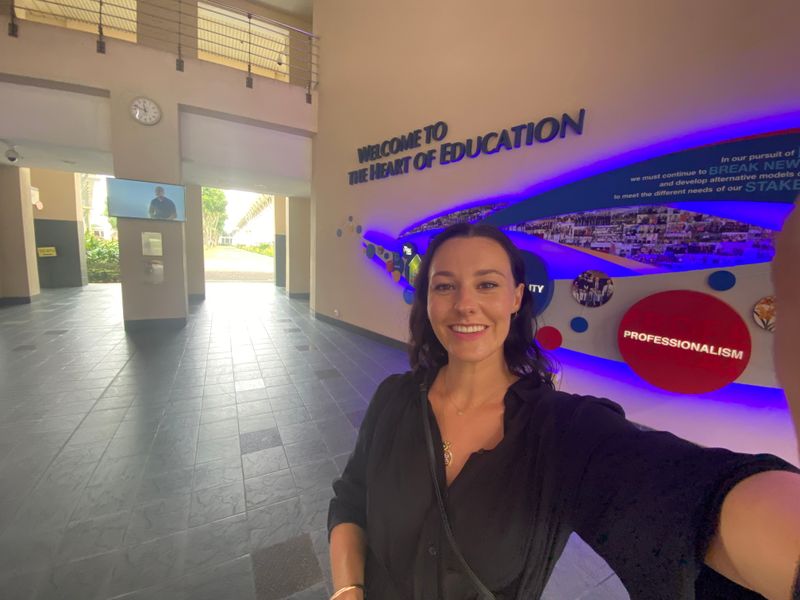
In 2024, I was fortunate to be awarded the inaugural Toowoomba Grammar School Teaching Fellowship to explore this interest more. My proposal, titled Enhancing Student Outcomes and Teacher Practice through Math Mastery: A Comprehensive Study Tour and Curriculum Framework Development, focused on investigating how the Math Mastery approach could strengthen both student understanding and teacher instruction in mathematics. This opportunity took me to Singapore to investigate the Math Mastery approach - an internationally recognised model of mathematics instruction that supports every student to achieve deep understanding through carefully sequenced, explicit teaching.
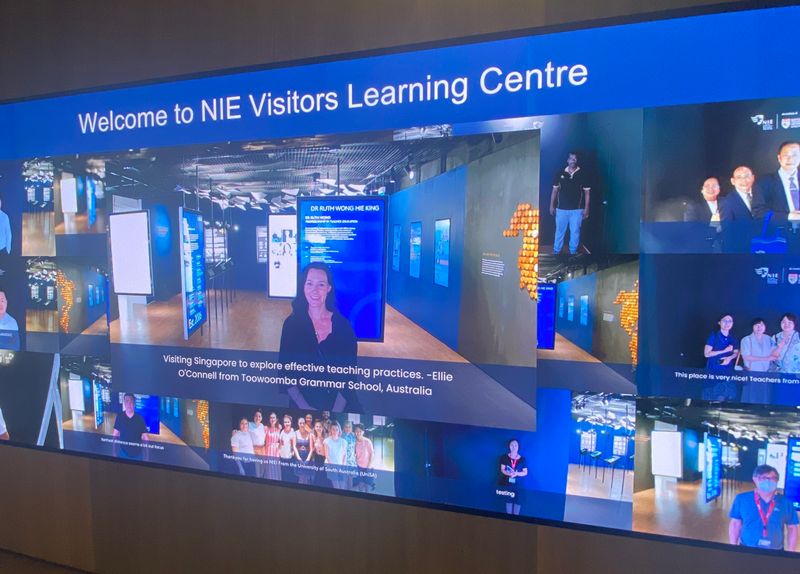
Why Mathematics? Why Now?
Across Australia, there is growing national concern about the long-term decline in mathematics achievement. Reports such as the Gonski Review (2018) highlight that many students are not mastering the basic skills needed for future learning, and that teachers need more explicit, structured tools to support all learners. In the early years of schooling—where concepts are first introduced, and mathematical mindsets are formed—it’s crucial that instruction is clear, consistent and effective. Gaps in understanding at this stage can have long-lasting effects on a child’s confidence and progress. The fellowship was an opportunity to examine international best practices and bring back evidence-informed strategies that could enhance both student outcomes and teacher practice in our own School.
Learning from Singapore: Schools and Insights
During my study tour in Singapore, I visited two leading international schools: Dulwich College and Invictus International School. Both schools use mastery-based approaches to mathematics, with structured, well-sequenced programs designed to develop deep conceptual understanding. At Dulwich College I observed math lessons from Years 1 to 5 that emphasised both mastery and practical application. The classrooms fostered a calm, focused learning environment in which teachers guided students through new concepts using clear, structured instruction, ensuring mastery through modelling, guided practice and checking for understanding before progressing. I also engaged in discussions with the school’s mathematics leadership team, who shared their planning processes and how they support teachers to differentiate within whole-class teaching.
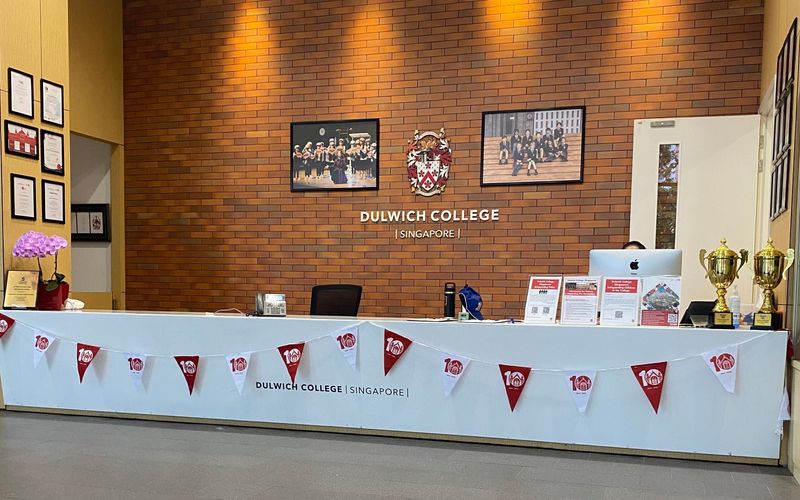
Invictus International School offered a contrasting yet equally valuable perspective. With a diverse cohort of learners and a flexible curriculum model, their team demonstrated how mastery principles can be embedded in a range of contexts. I also had the opportunity to meet with local educational consultants and curriculum developers, who offered insights into how Singapore’s national curriculum supports cumulative learning, daily review and concept mastery from the early years onwards.
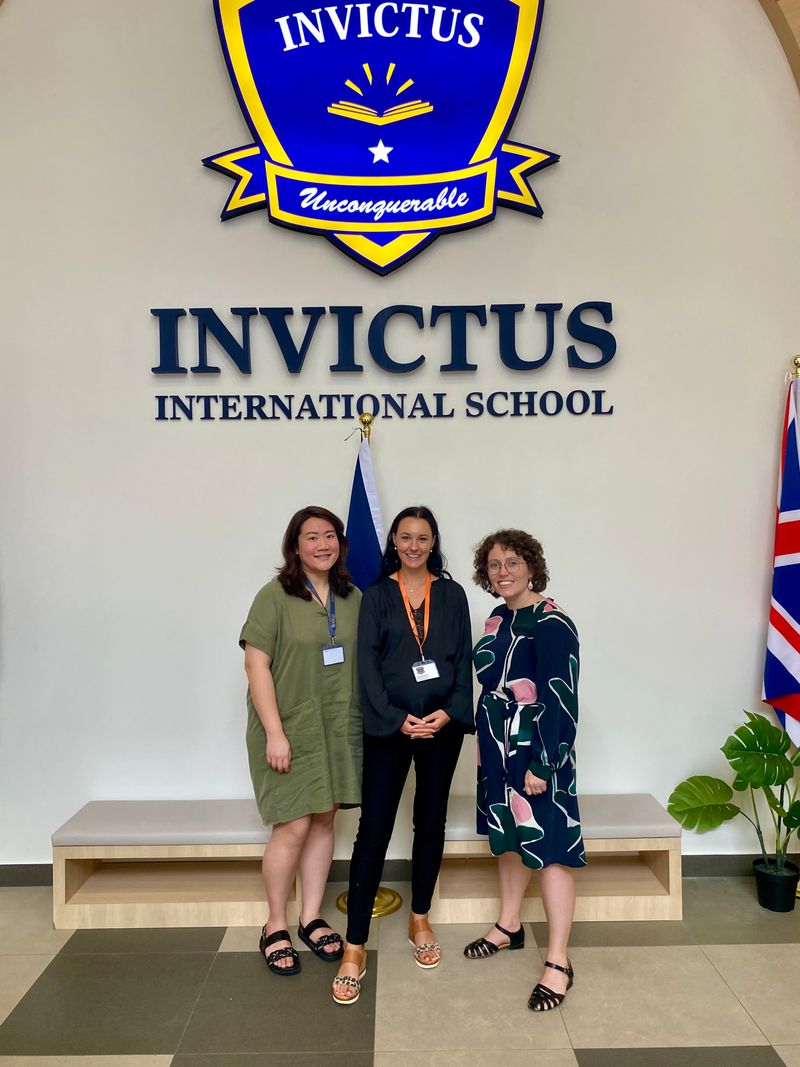
Key Findings: What Makes Mastery Work?
My observations confirmed the power of structured, explicit teaching in building strong foundations in mathematics. These were the key elements that stood out across all settings:
- Clear Learning Objectives
Teachers clearly define what students need to know and be able to do at the end of each unit or lesson.
- Whole-Class Instruction with Embedded Differentiation
Rather than streaming students by ability, mastery classrooms taught concepts to the whole class while using questioning, scaffolding and targeted support to meet individual needs.
- Corrective Instruction
Students who don't achieve mastery receive additional instruction or support to address knowledge gaps.
- Cumulative, Carefully Sequenced Learning
Each lesson built directly on the last, with time allocated for review and consolidation. This ensured that no student was left behind and that concepts were truly understood before new material was introduced.
- Mathematical Language and Reasoning
Teachers modelled precise vocabulary and encouraged students to explain their thinking. This supported deeper reasoning and helped students internalise core concepts.
- Learning Routines
Clear instructional routines and behaviours are established in every classroom, reinforcing expectations and supporting learning.
- Lesson Resources
Hands-on materials and visual examples are carefully chosen to help students connect with new concepts in ways that suit their learning needs.
- Fluency
Essential number facts are practised until automatic, helping students reduce cognitive load, enhancing students’ ability to focus on new and more complex ideas.
- Calm, Confident Learners
Most powerfully, students appeared confident, focused and proud of their mathematical thinking. The clear structure and shared learning journey contributed to a positive and inclusive classroom culture.
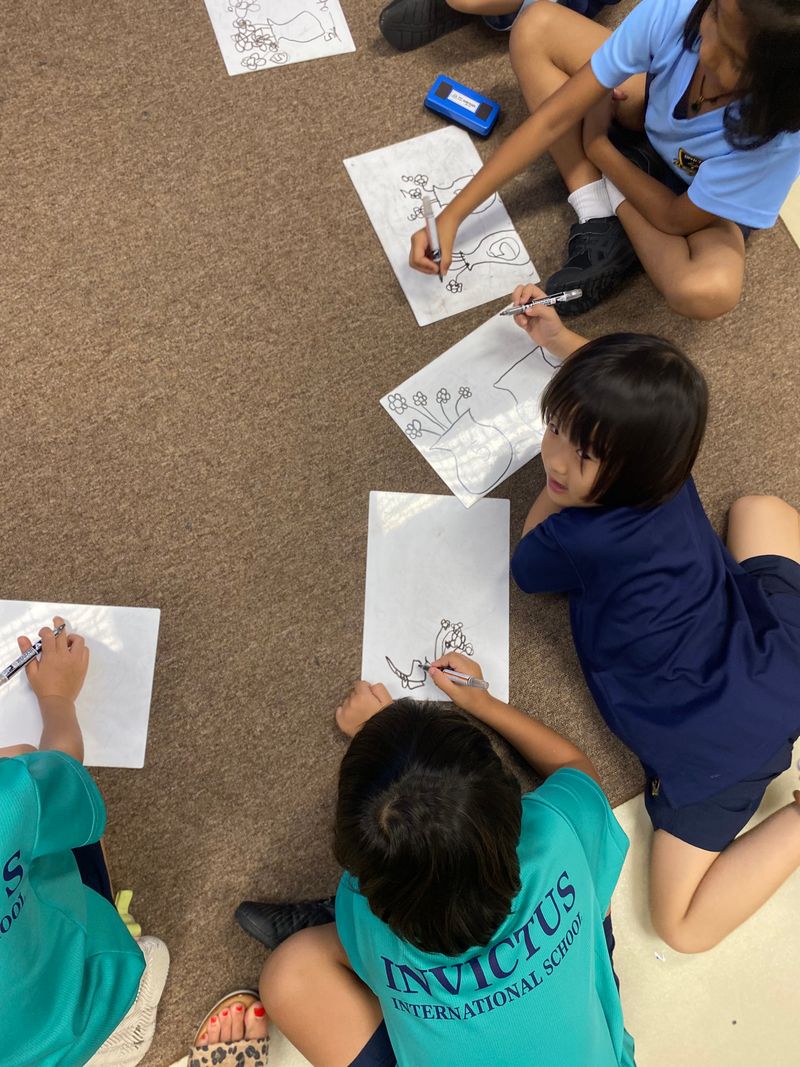
Global Perspective: Insights from Kinder World School
As a part of my research, I was able to engage in a conversation with Peter Baker, Principal Supervisor of 13 KinderWorld International Schools across Vietnam, I was able to dive deeper into how the Math Mastery approach works in large, diverse educational settings. These schools have adopted the Singapore Math model, a mastery-based framework built around explicit teaching and cumulative learning - many of the same principles I explored during my study tour.
Peter shared that their decision to adopt this approach was driven by a need for a consistent, evidence-based program that teachers could pick up quickly, deliver confidently and implement cost-effectively. “We started the explicit teaching model a couple of years back,” he explained. “We call it the KinderWorld Model. Retrieval practice to strengthen knowledge and problem-based application of learning is also included. I think it certainly makes a difference.”
What stood out to me in our discussion was just how closely their journey mirrors our own at TGS. We have already embedded strong practices in literacy through well-structured, whole-school programs that align with explicit teaching and the science of learning. However, mathematics remains an area where we see room for greater consistency and greater gains.
While our data confirms that we continue to perform above the state average in mathematics, recent NAPLAN results highlight a national decline in numeracy - a trend that we are aiming to avoid in our own School’s results. While we continue to do well, we have an opportunity and a responsibility to do even better for our boys. This is not just a local issue. In 2015, the Office of the Chief Scientist collaborated with ACARA to examine schools across Australia that had made significant improvements in numeracy over two years. Their report found that mastery-oriented environments were a consistent feature in high-performing schools (Smith et al., 2028).
When I asked Peter how the performance of his students compared to their peers in Australia, his response was compelling:
“We’ve had feedback from parents - many of whom are teachers - saying that when their children return to Australia, they are at least one to two years ahead in mathematics compared to their peers at home.”
This reinforces what global research has been saying for some time: structured, explicit, mastery-based teaching works. And more importantly, it works for all learners - not just the confident few.
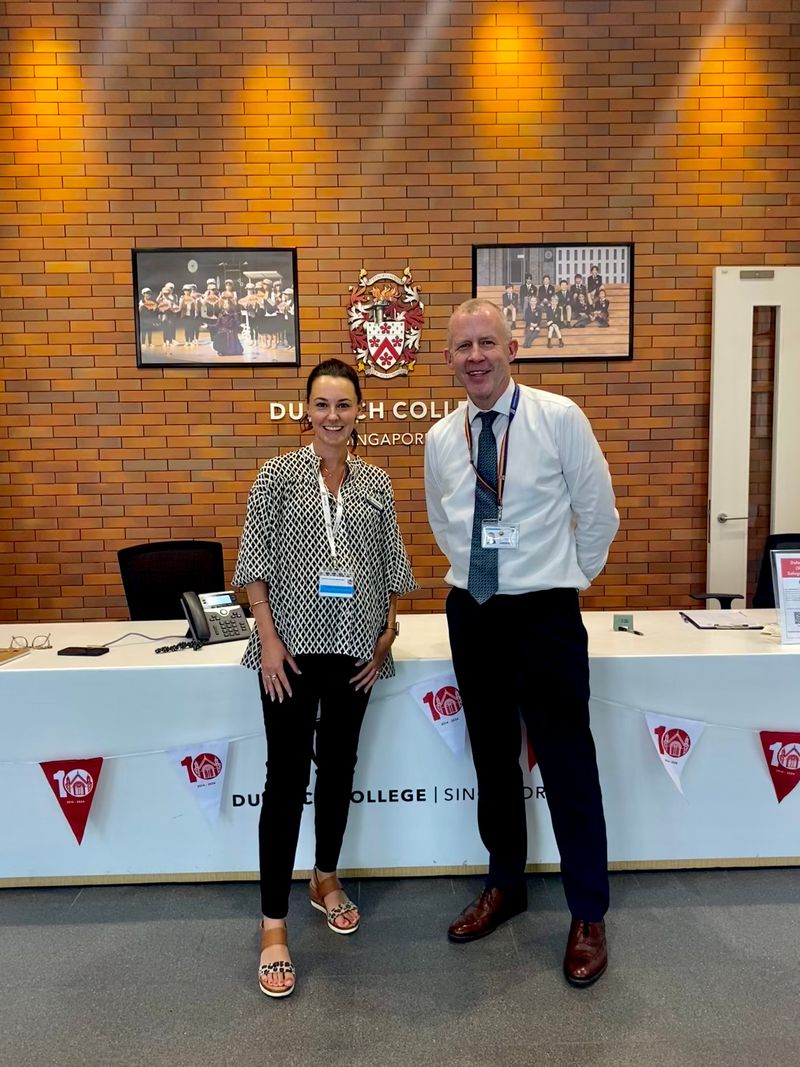
Bringing It Home: What’s Next for TGS?
I’m incredibly grateful for the opportunity this fellowship has provided - not only in shaping and deepening my own practice, but in contributing to a broader, shared vision for mathematics at TGS. This experience reinforced my belief that every student can succeed in mathematics when we give them the right tools, time and teaching. We are now laying the foundations for a clear and united approach to numeracy, one that will equip every boy with the confidence and skills to succeed - not just in the classroom, but throughout their schooling and beyond. And just as importantly, we’re building a community of confident teachers who are equipped to deliver lessons that are clear, consistent and deeply impactful.
I would like to sincerely thank Dr John Kinniburgh for granting me the opportunity to undertake this Fellowship. His support and encouragement throughout the process has been instrumental, and I am truly grateful for his guidance and mentorship. Dr Kinniburgh’s commitment to prioritising high-quality professional development for staff continues to shape a culture of growth and excellence in teaching and learning at TGS.
Latest Blog
The Big Six Reading Tips
Unlocking Literacy - The Big Six Elements for Your Child’s Reading Success Literacy skills are a core component of each day for our students, and parents often ask how they can support this from home. I am delighted to share with our parent community the essential components that underpin successful reading development. These elements, known as the Big Six, provide a solid foundation for your son’s literacy journey. These critical building blocks include: Oral Language: Communication skills are…
Boarding - Building Men of Good Character
Over the past five years, we have found one of the most valuable lessons that boarding can teach teenage boys is the ability to self-navigate and overcome challenges. Entering a boarding house is the first time many boarders have stepped away from the comfort and security of their parents and guardians. Although this can be a daunting experience, one of the things that this unfamiliarity creates is the ability to organise yourself. With a larger workload than previous years, a greater number…
The Learning Pit
Learning is at our core and covers all subject disciplines, co-curricular pursuits, personal development and interest areas. Helping our Toowoomba Grammar School boys view learning as a disposition that goes well beyond the classroom context is incredibly important. Learning has a life-long value in all we do. We also acknowledge that learning can be challenging at times, and it can be uncomfortable, but also wonderfully inspiring and fulfilling. Appreciating the full range of feelings and…
Leap Before You Look
The boarding journey offers students a plethora of opportunities to step outside of their comfort zone and take advantage of new environments, relationships, and opportunities during their time at Toowoomba Grammar School. We often talk about “character education” – a theory that originated in the US and has been increasingly embraced by leading schools globally. It is encouraging all students to develop new approaches to their learning, including aspects of morals and ethics, thinking,…
Literacy at TGS: A research-informed approach
A recent Grattan Institute report has shared that one-third of Australian students are failing to learn to read proficiently, referring to the situation as a ‘preventable tragedy’. In addition, the report identifies evidence-based approaches utilising structured literacy programs with phonics and explicit instruction as the most effective methods of teaching literacy. At Toowoomba Grammar School, we implement a structured synthetic phonics approach to teaching spelling and reading that…
Past Mothers, Present Supporters
Any Old Boy will tell you the Blue and Gold is part of their blood. They love the history, the traditions, the memories, and the lifelong friends they made during their time at Toowoomba Grammar School. Well, it seems the same can be said for many TGS mums. The Past Mothers’ Group was formed in 1979 by Mrs Mary Campbell who contacted as many past mothers as she could and invited them to meet at her home where the Past Mothers’ Group was officially formed with the intention of retaining links…
The TGS Interact Club - the Reward for Work Well Done
The Interact Club successfully raised over $10,000 last year for charities and services on a local, statewide and international scale through the hard work and commitment of its members. With these funds, the Interact Club has donated Backpack Blankets to Toowoomba's homeless, helped AEIOU's efforts in supporting children with autism, contributed to the "Are You Bogged Mate?" campaign for rural mental health and raised funds for the Royal Flying Doctor Service. As well as many other individual…
A Question of Character
In an age bursting with technological innovations and an overwhelming abundance of information, the present era appears to be characterised by a swift and unrelenting pace of change. Our society, young and old alike, finds itself constantly bombarded with provocative and sensationalist narratives. The media floods our consciousness with constant streams of global dilemmas, highlighting the flaws of our leaders, uncovering corporate or political scandals, and bringing conflicts and tragedies…
Coping with Homesickness
Homesickness can be brutal for both your son and for parents. As a parent it can feel like your heart is being ripped out in some cases daily. It is extremely hard hearing how sad your boy may sound on the phone, and then you are left reeling for 24 hours until the next call – you are often left worried that they are feeling like this all day. Rest assured only vary rare cases are that bad and in most cases it’s temporary and things usually improve as your son settles in. The reality is that…